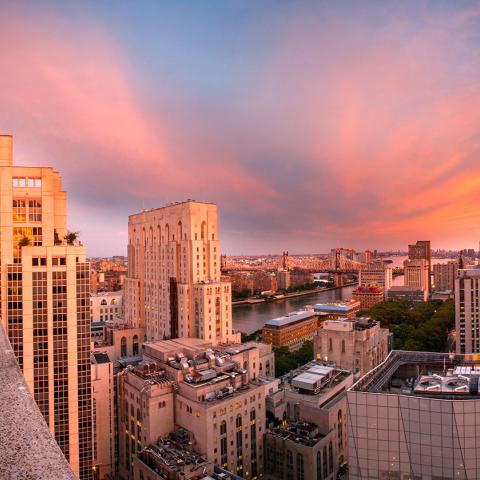Invite B-1/B-2 or WB/WT Visitors
This page is for hiring departments. International students and scholars: Please visit Life at Cornell for families to find out how you can bring your spouse or children under the age of 21 to the United States to join you or invite friends and family to visit.
Business and Tourist Visitor Types
B-1/B-2
Speakers or short-term researchers who will be at Cornell for six months or less are eligible for B visitor status. This visa category is not intended for Cornell academic appointments of a term or longer. Scholars planning short visits to one or more U.S. university campuses may also use the B visa category.
B-1 visa status is for business visitors, while B-2 is for tourists. A customs and border protection officer at the U.S. port of entry will make the final determination. If the business purpose of the visit is not clear, a B-2 visa is issued by default.
B visitors can have academic appointments at Cornell but cannot receive any salary or compensation. Reimbursement for expenses is allowed. The visitor can accept an honorarium, but only if the visit to Cornell does not exceed nine days, and the visitor has accepted honoraria from no more than five institutions or organizations within the previous six months.
WB/WT
Citizens of certain countries are eligible to enter the United States without obtaining a visa as either business visitors (WB waiver business) or tourists (WT waiver tourist). The eligibility criteria for admission are identical to those seeking admission based on a B-1/B-2 visa. Application is made through ESTA (Electronic System for Travel Authorization) and must occur at least 72 hours in advance.
WB/WT visitors should present their Cornell letter of invitation when entering the United States. An officer will issue an electronic entry record (I-94) with the notation WB or WT. If the business purpose of the visit is not clear, WT is issued by default.
WB/WT visitors are limited to three months with no extensions or change of status possible. If the visit will be longer than three months, the visitor should obtain the B-1/B-2 visa stamp or consider another visa classification.
Note: B-1/B-2 and WB/WT visitors are not permitted to study while in the U.S.
For Applicants: How to Apply for B-1/B-2
1 Take your invitation letter to U.S. consulate.
Present a letter of invitation from Cornell to a U.S. consulate. The letter must state the purpose of the visit and make it clear that Cornell will pay no salary or compensation for services. The letter can mention reimbursement or honoraria, if the visit will meet honoraria guidelines. It is at the American consul's discretion to grant any visa.
Sample Invitation Letters
2 Request B-1 classification at a U.S. port of entry.
When you arrive in the United States, you will be required to request entrance at the U.S. port of entry.
3 Fill out an honoraria form if receiving payment.
If you expect to receive reimbursement or an honorarium payment of any kind from Cornell (find out more here), fill out the Foreign National Honoraria Attestation Form.
Next Up: Sponsor Permanent Residency

